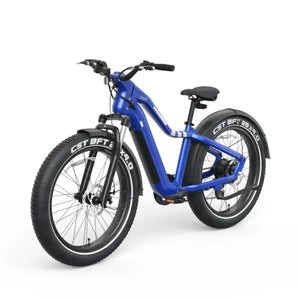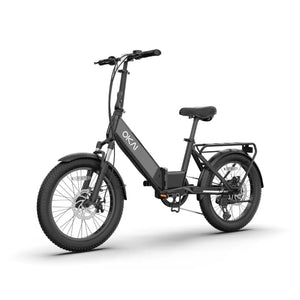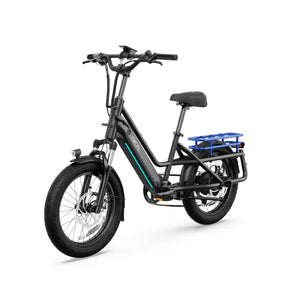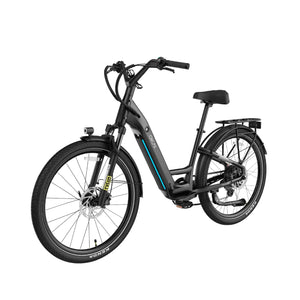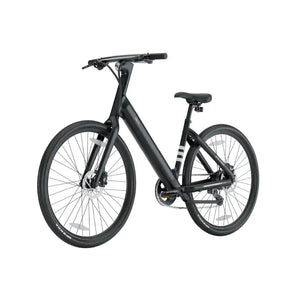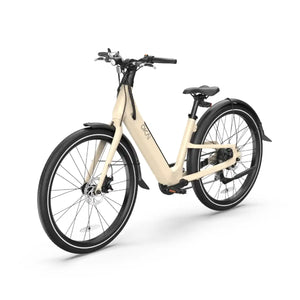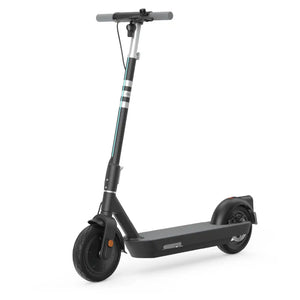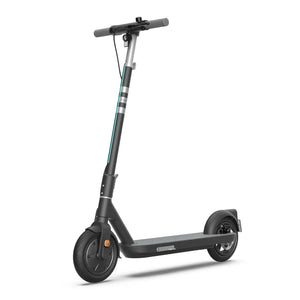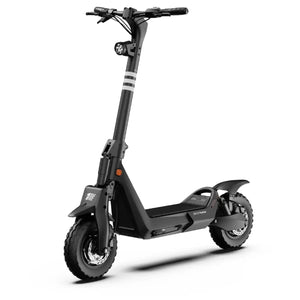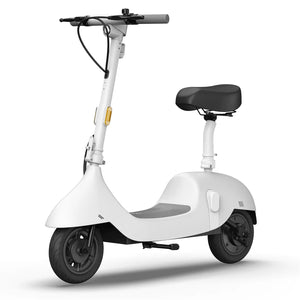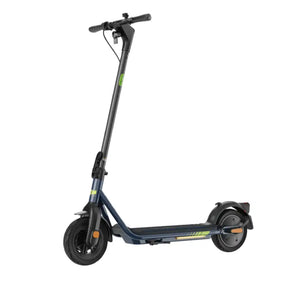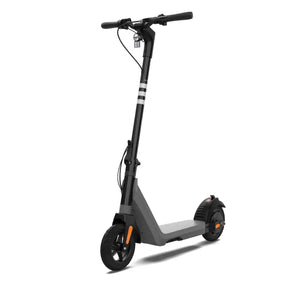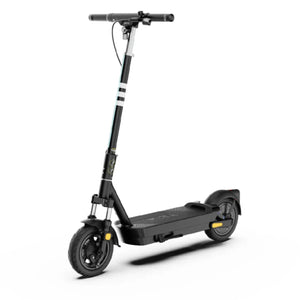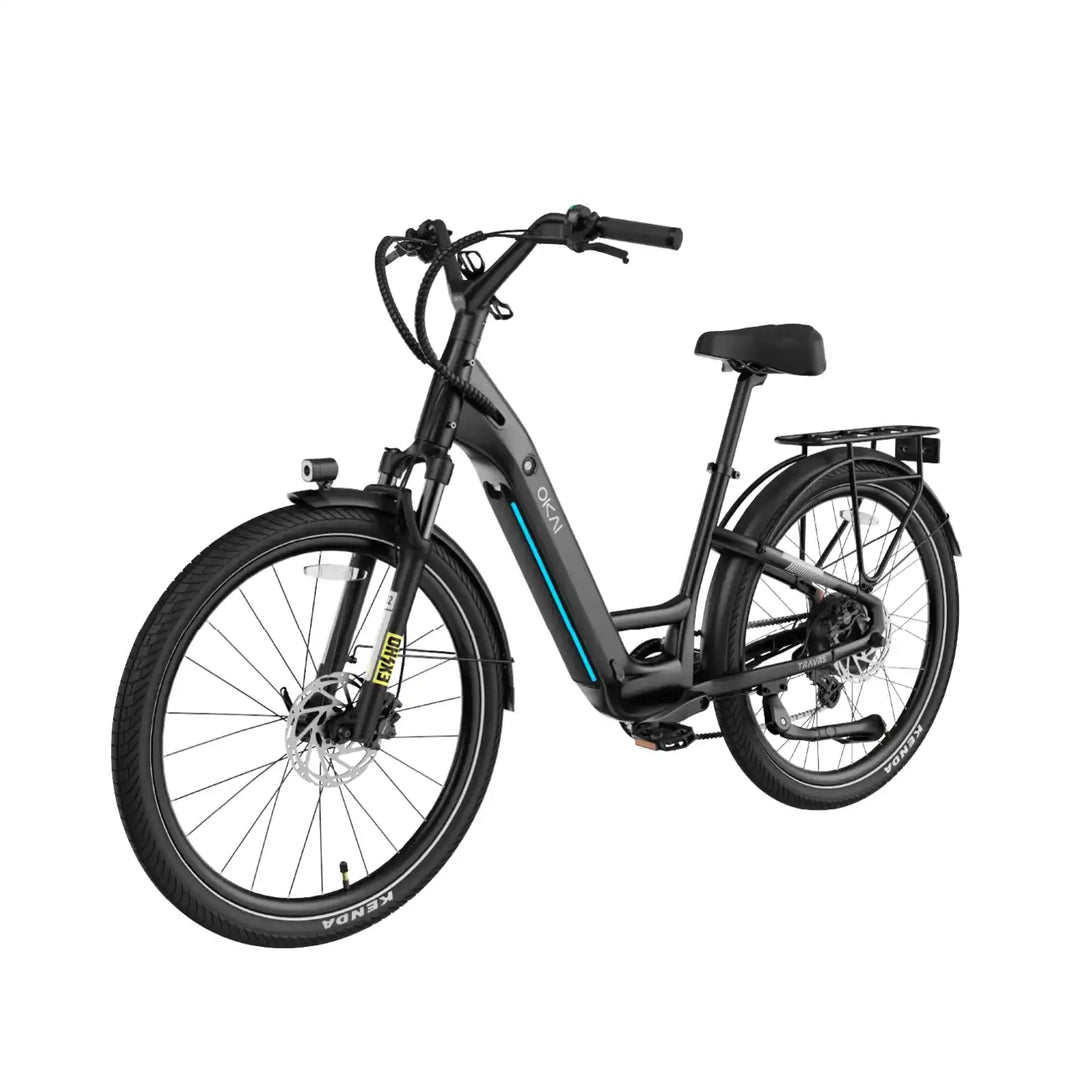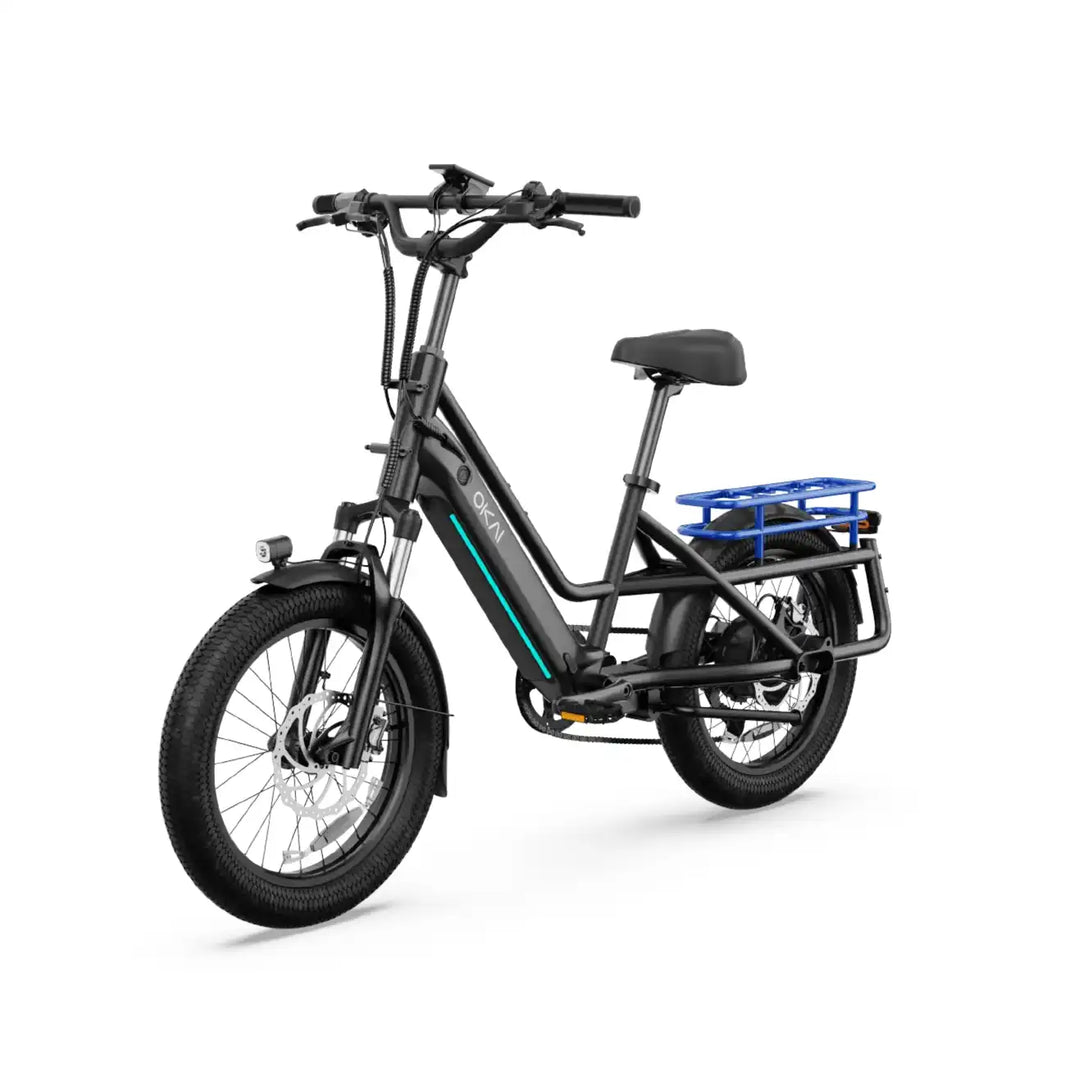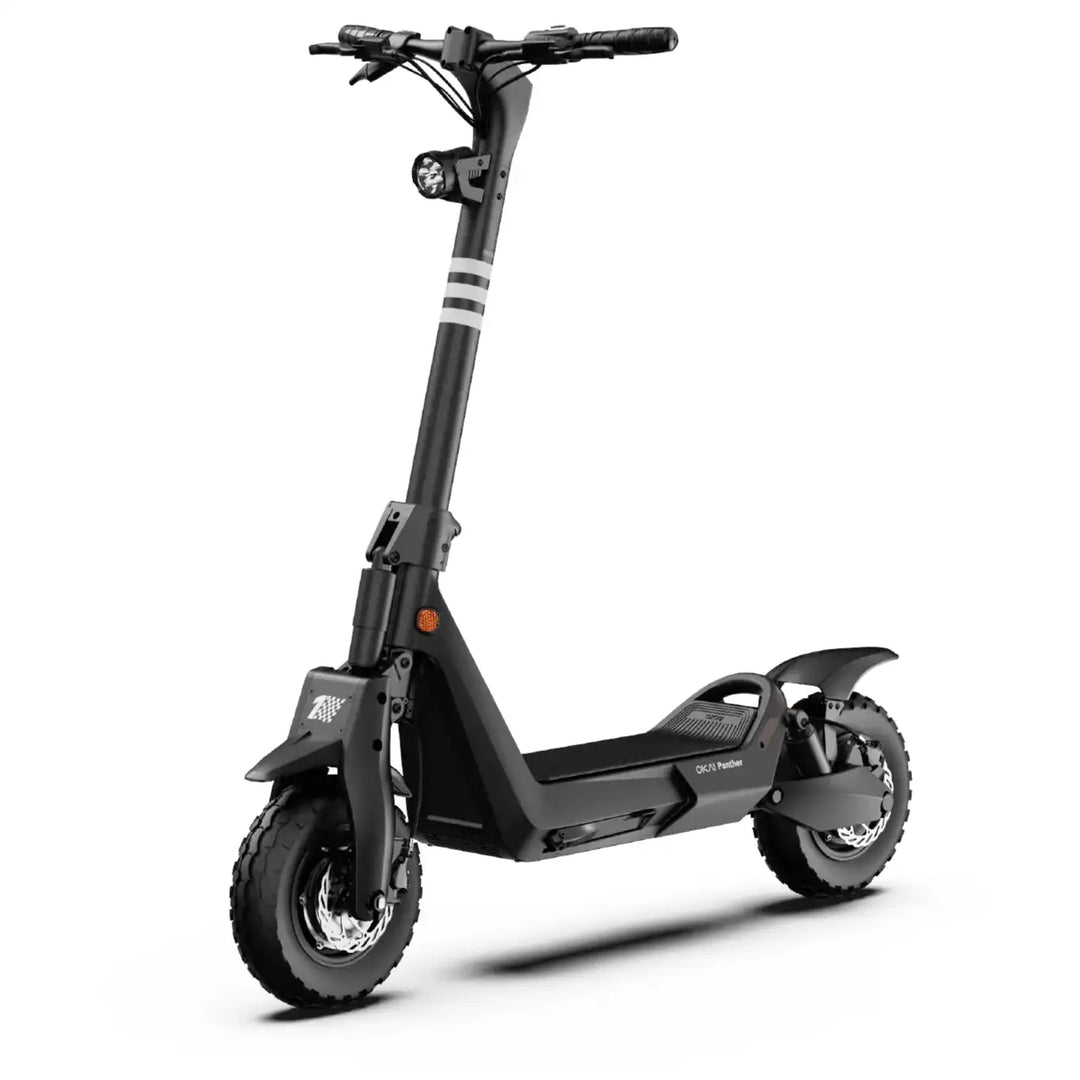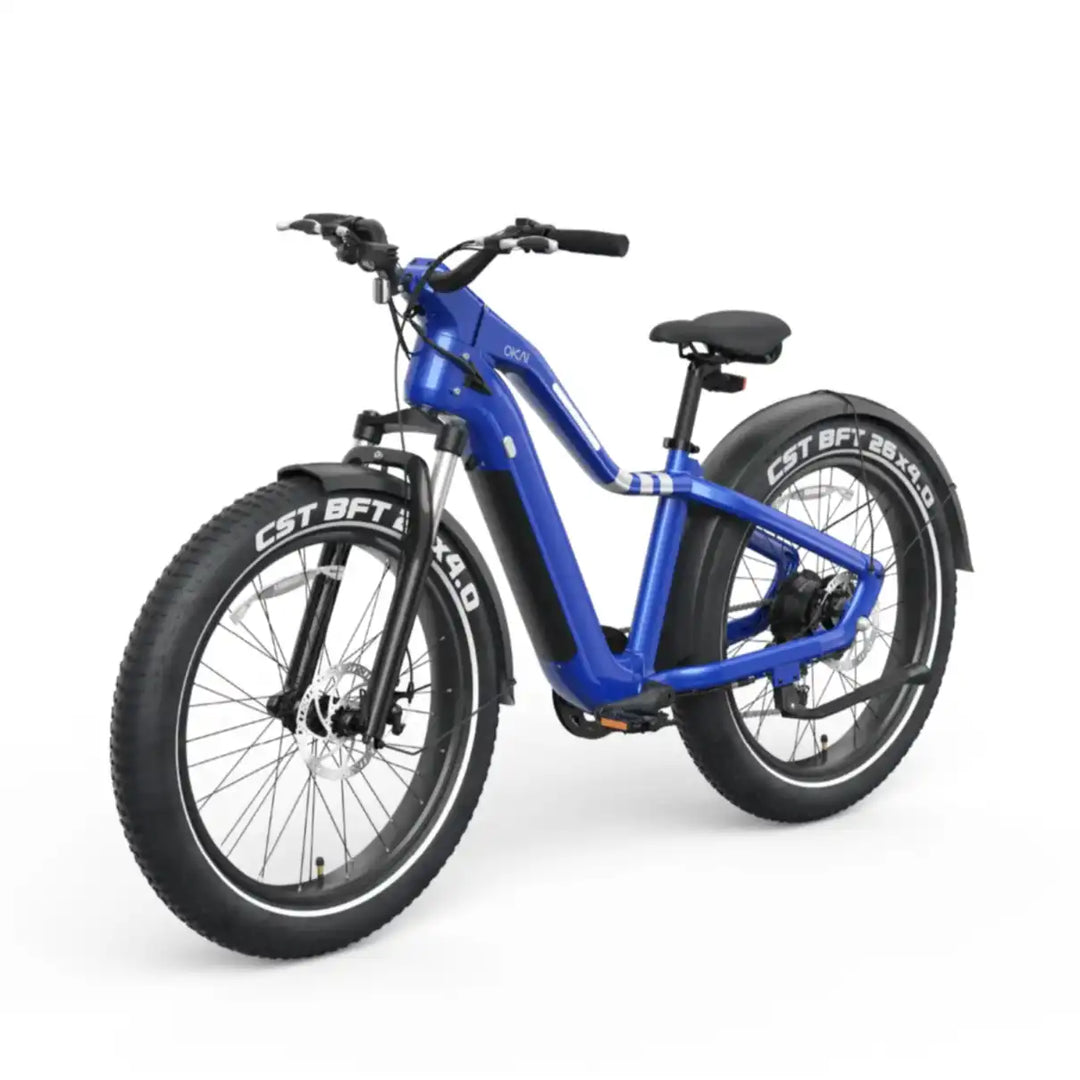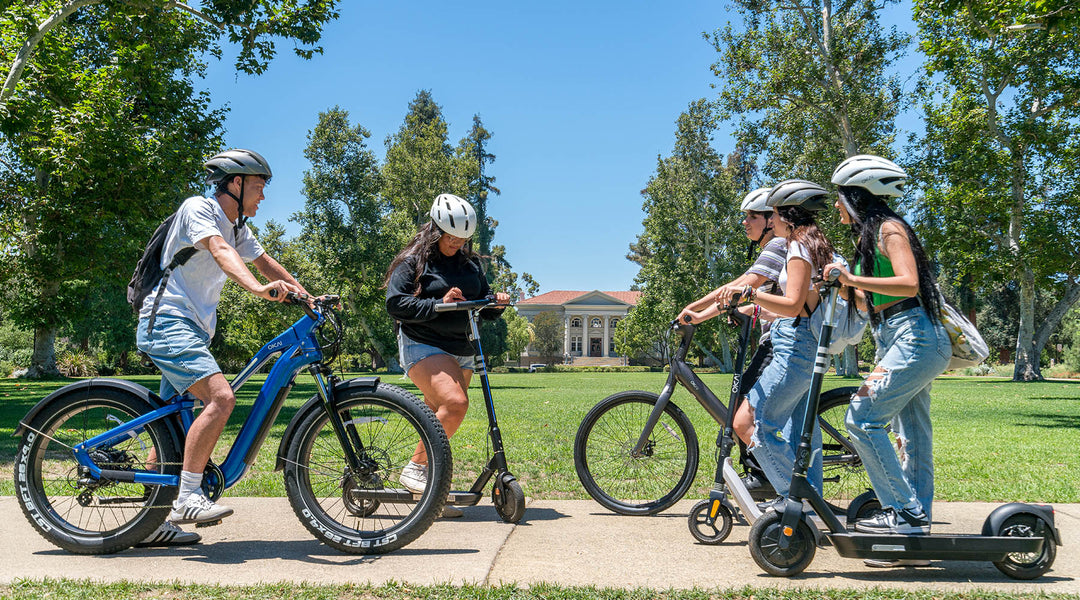As cities become more congested and environmental concerns take center stage, alternative transportation options like electric bikes and electric scooters have gained significant popularity. Both are eco-friendly, cost-effective, and convenient ways to navigate through urban spaces, but each has its own set of advantages and considerations. If you're wondering which one is right for you, let's break down the key factors to help you make an informed choice.
Speed and Range
When considering an electric bike or scooter, speed and range are crucial factors, especially if you plan to use it for commuting.
-
Electric Bikes: Electric bikes are generally faster than electric scooters, with speeds ranging from 15 to 28 mph (24 to 45 km/h), depending on the model. They also typically offer a longer range, with many models covering 30-60 miles on a full charge. This makes electric bikes ideal for longer commutes, especially if you want to avoid the hassle of public transportation or sitting in traffic.
-
Electric Scooters: Electric scooters are usually slower, with speeds ranging from 10 to 20 mph (16 to 32 km/h). Their range is also typically shorter, with most models covering between 10 to 25 miles on a full charge. While these are sufficient for shorter trips and urban commutes, they may not be ideal for longer distances.
Best for You: If you need to cover longer distances or want more speed, an electric bike is likely a better choice. However, if your trips are typically short and in congested areas, a scooter could be the more practical option.
Comfort and Handling
Comfort plays a significant role in your daily ride, especially if you're traveling longer distances or over uneven terrain.
-
Electric Bikes: With larger tires and a more traditional bike frame, electric bikes offer a smoother, more comfortable ride. They come with built-in seats, which means you don’t have to stand for the entire journey. This makes them more suitable for longer commutes, and you can easily adjust the riding position for greater comfort. Additionally, they can handle a variety of terrains, from city streets to slightly rougher paths.
-
Electric Scooters: Scooters tend to have smaller, solid tires, which can make the ride bumpier, especially on rough or uneven surfaces. While they are more compact and easier to store, you’ll be standing for the entire ride, which can become uncomfortable after a while, especially on longer trips.
Best for You: If comfort is important, especially for longer journeys, an electric bike is the more comfortable option. However, if you're just hopping around the city for short errands, a scooter's minimalistic design could work well.
Portability and Storage
Both electric bikes and scooters have their strengths in terms of portability and storage, but they differ in how you can carry and store them.
-
Electric Bikes: Electric bikes are larger and heavier, typically weighing between 40 and 70 pounds (18-32 kg). While many e-bikes can be folded, they still take up more space than a scooter. This can be a drawback if you need to bring the bike on public transportation or store it in a small apartment or office.
-
Electric Scooters: Electric scooters are much more lightweight and compact, usually weighing between 20 and 30 pounds (9-13 kg). Many models are foldable, which makes them easy to carry onto buses, trains, or into your home or office. If you’re limited on storage space, an electric scooter will likely be the more convenient option.
Best for You: If you have limited storage space or need something easy to carry, the electric scooter is the winner. If you don’t mind a larger, heavier vehicle and need something that offers more comfort and stability, an electric bike could work better.
Cost and Maintenance
The cost of both electric bikes and scooters can vary depending on the brand, features, and battery quality.
-
Electric Bikes: Electric bikes tend to be more expensive than scooters, with prices ranging from $500 to $5,000, depending on the features. Maintenance costs can also be higher, as e-bikes have more complex systems (gears, suspensions, etc.). However, they are generally more durable and built to last longer.
-
Electric Scooters: Electric scooters are typically more affordable, with prices ranging from $200 to $1,500. Their maintenance is generally less expensive, as they have fewer components to maintain. However, they are more prone to wear and tear due to their smaller size and lighter construction.
Best for You: If you're looking for a budget-friendly option, an electric scooter is likely to be the more affordable choice. However, if you're willing to invest in a more expensive, durable solution, an electric bike can provide greater longevity and performance.
Environmental Impact
Both electric bikes and scooters are considered environmentally friendly, but how they are used can influence their overall impact.
-
Electric Bikes: E-bikes are excellent for reducing your carbon footprint, especially since they can replace car trips. They’re especially ideal for longer commutes that would otherwise contribute to emissions from a vehicle. Additionally, since electric bikes are often used in areas with better infrastructure for cyclists, they help reduce traffic congestion.
-
Electric Scooters: Like e-bikes, electric scooters also have a minimal environmental impact. They can help reduce car usage, especially in urban areas, where congestion is a concern. However, scooters often have a smaller battery, which means they need to be replaced more frequently than e-bike batteries.
Best for You: Both options are eco-friendly, but if you're aiming to make a significant reduction in your carbon footprint while commuting long distances, an electric bike might be a more sustainable option.
Legal Considerations
Different regions have varying regulations for electric bikes and scooters, so it’s important to consider local laws.
In many places, electric bikes are considered bicycles, so they are often allowed on bike paths and in areas where regular bikes are permitted. However, laws around speed limits, helmet use, and where they can be ridden can vary.
For example, in California, an ebike is defined as "a bicycle equipped with fully operable pedals and an electric motor of less than 750 watts." Within that classification there are also three types:
Class 1: Top assisted speed of 20 mph, with pedaling
Class 2: Top assisted speed of 20 mph, throttle assisted
Class 3: Top assisted speed of 28 mph that must be pedaled
As Class 1 and 2 are similar performance to bicycles, these bikes are usually allowed wherever regular bicycles are allowed. Class 3 bikes however, may pose additional safety risks, and thus restricted from Class 1 bike lanes.
Electric Scooter Regulations
Electric scooters tend to have stricter regulations. In some cities, they may be restricted to certain areas or subject to speed limits. You might also need to follow specific rules about where to park them to avoid fines or inconvenience.
In California, you are able to legally operate an e-scooter so long as you have a valid driver's license. You don't need to register with the DMV. You are not allowed to ride on a sidewalk.
However, you are restricted to only riding up to 15 MPH, and can only ride on a designated bicycle path, trail, or bikeway. Going over the speed limit can get you ticketed for up to $250.
Additionally, if you are under the age of 18, you are required to use a properly sized and fastened bicycle helmet while using an e-scooter. Adults do not have the same restrictions, though it is highly recommended to wear a helmet, as riding without a helmet can be dangerous.
Something to note is that when making a left-hand turn, you must dismount and cross the roadway on foot with the pedestrian walkway. This rule makes e-scooter riders much safer in traffic.
Conclusion: Which Is Right for You?
The decision between an electric bike and an electric scooter depends on your personal needs and lifestyle. If you're looking for comfort, longer-range commutes, and the ability to handle different terrains, an electric bike may be your best bet. On the other hand, if you need a lightweight, portable, and budget-friendly option for shorter trips around the city, an electric scooter could be the perfect fit.
Consider how far you plan to travel, how comfortable you want your ride to be, and how important portability and cost are to you. Ultimately, both electric bikes and electric scooters offer great solutions to modern transportation challenges—so the right choice is the one that best fits your needs.
